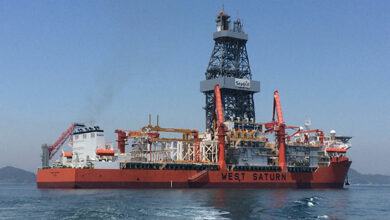GE’s real-time Directive system increases reliability with stable sensor package
GE Oil & Gas recently launched its Directive system, which was showcased on the exhibit floor at the 2014 OTC last week. It features a sensor package that is at least four times more stable, meaning time between calibration is at least four times longer, Mazhar Mahmood, MWD/LWD Product Line Leader for GE Oil & Gas, said in this exclusive interview with DC. The system monitors shock and vibration in real time and is rated to an operating temperature of 175°C. With real-time monitoring, operators are able to take corrective action, thus mitigating risks of nonproductive time.




